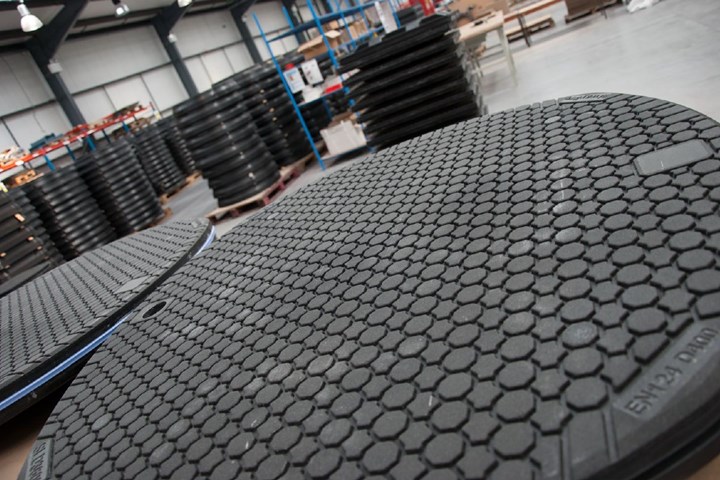Scott Bader, Structural Science Composites partner for resin supply
The five-year partnership will enable SSC to grow its business and manufacture composite covers and frames.

Photo Credit: Scott Bader
Scott Bader Co. Ltd. (Wellingborough, U.K.) and Structural Science Composites Ltd. (SCC; Cumbria, U.K.) announced in August that both companies have signed a five-year partnership for the supply of a Crestapol urethane acrylate resin for the production of composite covers and frames.
The agreement is said to enable SSC to grow its business with a long-term consistent supply of high-performance material from Scott Bader. SSC have been globally supplying the water, gas, oil, electricity and other infrastructure sectors since 2007, and with the new agreement in place, the company has set a target to double its commercial output over the next four to five years. The supply of Crestapol resin will commence in September 2020 until August 2025.
With the urethane acrylate resin, SSC says it can manufacture covers and frames that are one quarter the weight of concrete covers and one-third the weight of iron covers, which reduces overall transportation costs. Further, the Crestapol resin is said to be fast-curing and meets all EU regulatory standards.
SSC manufactures B, C and D class covers and frames that are said to be permanently anti-slip, provide seal and lock options, are corrosion resistant, can be made conductive or non-conductive and require very little maintenance.
Related Content
-
New online training course targets prepreg basics
JEC World 2024: Composites Expert highlights how its E-Learning Composites Academy platform supports flexible industry learning with new courses developed with Stelia Aerospace North America.
-
Women in the Composites Industry brings together women for networking, educational opportunities
Aiming to support the growth of women in this industry, the WCI industry group and its partners recently held its first live training event hosted by Owens Corning.
-
The Native Lab launches composites course training membership plan
Courses that touch on the fundamentals of composite materials, design, analysis and more are available for individuals and companies alike through TNL’s online platform.













